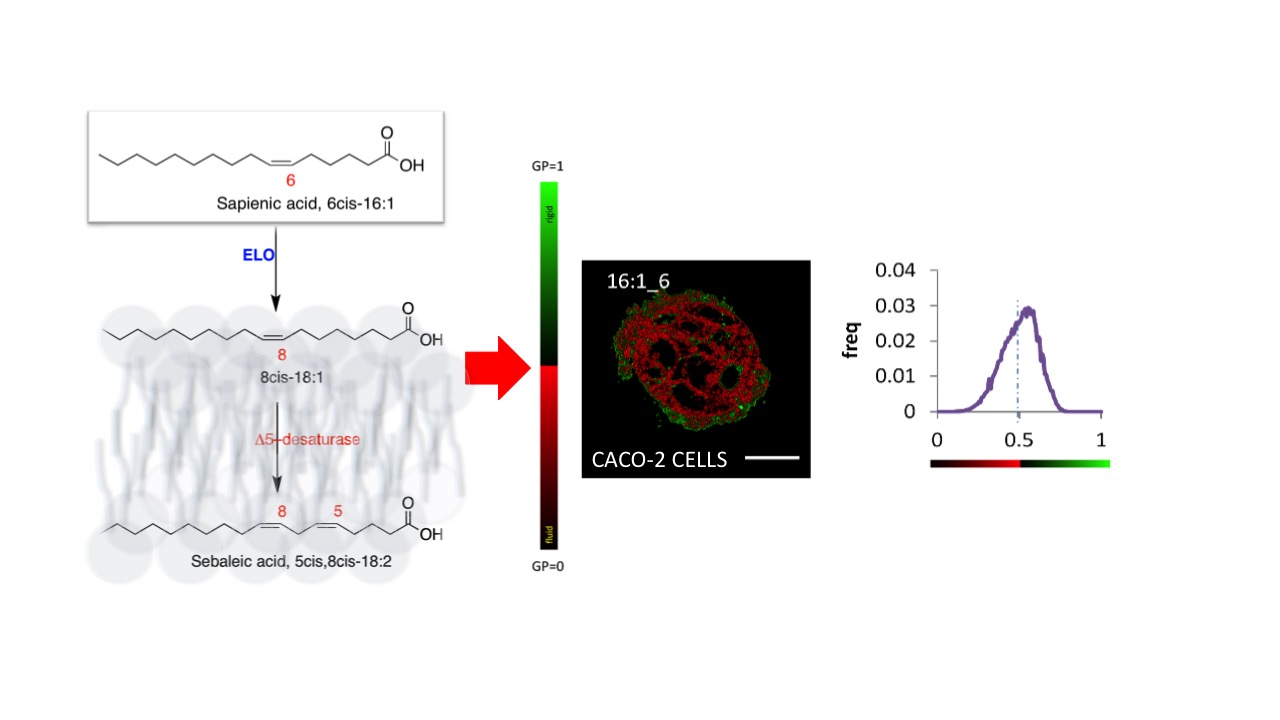Palmitic acid metabolism involves delta-9 and delta-6 desaturase enzymes forming palmitoleic acid (9cis-16:1; n-7 series) and sapienic acid (6cis-16:1; n-10 series), respectively. The corresponding biological consequences and lipidomic research on these positional MUFA isomers are under development. Furthermore, sapienic acid can bring to the de novo synthesis of the n-10 polyunsaturated fatty acid (PUFA) sebaleic acid (5cis,8cis-18:2), but such transformations in cancer cells are not known. The model of Caco-2 cell line was used to monitor sapienic acid supplementation (150 and 300 μM) and evidence the formation of n-10 fatty acids as well as their incorporation at levels of membrane phospholipids and triglycerides. Comparison with palmitoleic and palmitic acids evidenced that lipid remodeling was influenced by the type of fatty acid and positional isomer, with increase of 8cis-18:1, n-10 PUFA and decrease of saturated fats in case of sapienic acid. Cholesteryl esters were formed only in case of sapienic acid. EC50 of sapienic acid (232.3 μM at 96 hrs) was the highest found among the tested fatty acids, thus influencing cell viability that was only reduced at 25% at 300 μM, whereas palmitoleic acid induced cell death. Two-photon fluorescent microscopy with Laurdan as a fluorescent dye provided information on membrane fluidity, highlighting that sapienic acid increases the distribution of fluid regions, probably connected with the formation of 8cis-18:1 and the n-10 PUFA in cell lipidome. Our results bring evidence for MUFA positional isomers and de novo PUFA synthesis for developing lipidomic analysis and cancer research.

